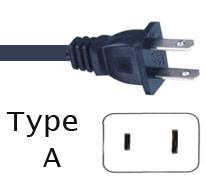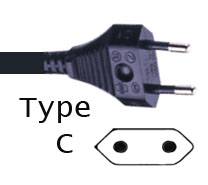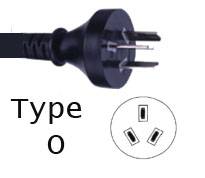Thailand, located in Southeast Asia, is a country known for its vibrant culture, stunning beaches, and rich history. From the bustling streets of Bangkok to the ancient temples of Chiang Mai and the idyllic islands of Phuket and Koh Samui, Thailand offers travelers a diverse and memorable experience.
Ultimate Thailand Travel Guide
Destinations
Best time to go
The best time to visit Thailand depends on the region you plan to visit. The dry season, from November to April, is ideal for most areas, offering sunny weather and minimal rainfall. However, the wet season, from May to October, can bring heavy rains and humidity, particularly in coastal regions and the south.
Average Temperature By Month
January: 27°C (81°F)
February: 28°C (82°F)
March: 29°C (84°F)
April: 30°C (86°F)
May: 30°C (86°F)
June: 29°C (84°F)
July: 29°C (84°F)
August: 29°C (84°F)
September: 28°C (82°F)
October: 28°C (82°F)
November: 28°C (82°F)
December: 27°C (81°F)
What To Expect
Time Zone:
Indochina Time (ICT), UTC+7.
Currency:
The official currency of Thailand is the Thai Baht (THB). Credit cards are widely accepted in major cities and tourist areas, but it's advisable to carry cash for smaller establishments and markets.
Language:
Thai is the official language of Thailand, but English is widely spoken, especially in tourist areas, hotels, and restaurants.
Airport:
Suvarnabhumi Airport (BKK) in Bangkok is the main international airport in Thailand, serving as the primary entry point for international travelers. Don Mueang International Airport (DMK), also in Bangkok, primarily serves domestic and regional flights.
How To Get Around
Public Transport: Thailand has an extensive public transportation network, including buses, trains, and boats. The BTS Skytrain and MRT subway systems provide convenient access to major attractions in Bangkok, while long-distance buses and trains connect cities and regions across the country.
Tuk-tuks: Tuk-tuks are a popular and iconic mode of transport in Thailand, especially for short trips within cities and towns. Make sure to negotiate fares before starting your journey.
Songthaews: Songthaews are shared minibusses or pickup trucks commonly used for transportation in rural areas and smaller towns.
Rental Scooters: Renting a scooter is a popular option for exploring Thailand’s islands and beach destinations, offering flexibility and convenience.
Average Temperature By Month:
January: 27°C (81°F)
February: 28°C (82°F)
March: 29°C (84°F)
April: 30°C (86°F)
May: 30°C (86°F)
June: 29°C (84°F)
July: 29°C (84°F)
August: 29°C (84°F)
September: 28°C (82°F)
October: 28°C (82°F)
November: 28°C (82°F)
December: 27°C (81°F)
Plugs:
Thailand uses Type A, B, C, and O electrical plugs, with a standard voltage of 220V and a frequency of 50Hz.
VPN:
Using a VPN is advisable for secure internet browsing, especially when accessing public Wi-Fi networks.
Safety:
Thailand is generally safe for travelers, but it's essential to exercise standard precautions, such as safeguarding belongings and staying aware of your surroundings, especially in crowded areas and tourist spots.
Credit Cards and Banks
Credit Cards:
Credit card acceptance in Thailand is widespread, especially in urban areas, tourist destinations, hotels, restaurants, and larger shops. Visa and MasterCard are the most commonly accepted cards, followed by American Express and JCB. Contactless payments, including Apple Pay and Google Pay, are also becoming increasingly common.
Debit Cards:
Debit cards are widely used in Thailand for everyday transactions, including shopping and ATM withdrawals. Most banks issue debit cards that can be used domestically and internationally. Make sure to inform your bank of your travel plans to avoid any issues with card usage abroad.
ATMs:
ATMs are readily available in cities, towns, and tourist areas throughout Thailand, allowing you to withdraw Thai Baht (THB). Most ATMs accept international cards, but it’s advisable to use ATMs located inside banks or major shopping centers for security. Some ATMs may have withdrawal limits, so plan accordingly.
Currency Exchange:
The official currency of Thailand is the Thai Baht (THB). It’s recommended to exchange your currency to Thai Baht upon arrival in Thailand. You can exchange major foreign currencies at banks, currency exchange booths, and some hotels. US dollars and euros are widely accepted for exchange.
Banks:
Major banks in Thailand include:
- Bangkok Bank: One of the largest banks in Thailand, Bangkok Bank offers a wide range of banking services including savings accounts, loans, and foreign exchange.
- Kasikorn Bank (KBank): Another prominent bank in Thailand, Kasikorn Bank provides various banking products and services for individuals and businesses.
Traveler’s Checks:
Traveler’s checks are becoming less common worldwide, and their usage is limited in Thailand. It’s recommended to carry cash or use credit/debit cards for transactions. However, some banks may still offer services for cashing traveler’s checks, albeit with a fee.
Tips for Banking in Thailand:
- Notify your bank before traveling to Thailand to inform them of your travel plans and avoid any issues with card usage abroad.
- Keep your PIN and card information secure, and be cautious when using ATMs, especially in secluded areas or at night.
- Familiarize yourself with the current exchange rate to ensure fair transactions when exchanging currency.
- Carry small denominations of Thai Baht for smaller purchases, as change may be limited.
By understanding the banking system in Thailand, you can ensure a smooth and hassle-free financial experience during your travels in the country.
Locations
Thailand
TRAVEL FACTS
US State Dept Travel Advisory
The US Department of State currently recommends US citizens exercise normal precautions in Thailand. Some areas have increased risk. Consult its website via the link below for updates to travel advisories and statements on safety, security, local laws, and special circumstances in this country.
https://travel.state.gov/content/travel/en/traveladvisories/traveladvisories.html
Passport/Visa Requirements
For the latest passport and visa requirements for this country, please consult the U.S. State Department’s “Learn About Your Destination” search tool, available through the link below.
US Embassy/Consulate
[66] (2) 205-4000; US Embassy Bangkok, 95 Wireless Road, Bangkok 10330, Thailand; acsbkk@state.gov; https://th.usembassy.gov/
LGBTQIA+ Travelers
Telephone Code
66
Local Emergency Phone
Ambulance: 191; Fire: 199; Police: 191
Vaccinations
The CDC and WHO recommend the following vaccinations for Thailand: hepatitis A, hepatitis B, typhoid, cholera, yellow fever, Japanese encephalitis, rabies, meningitis, polio, measles, mumps and rubella (MMR), Tdap (tetanus, diphtheria and pertussis), chickenpox, shingles, pneumonia, COVID-19, and influenza.
Climate
Tropical; rainy, warm, cloudy southwest monsoon (mid-May to September); dry, cool northeast monsoon (November to mid-March); southern isthmus always hot and humid
Currency (Code)
Baht (THB)
Electricity/Voltage/Plug Type(s)
230 V / 50 Hz / plug types(s): A, B, C, O




Major Languages
Thai, Malay, Burmese
Major Religions
Buddhist 94.6%, Muslim 4.3%, Christian 1%
Time Difference
UTC+7 (12 hours ahead of Washington, DC, during Standard Time)
Potable Water
Opt for bottled water
International Driving Permit
Suggested
Road Driving Side
Left
Tourist Destinations
Bangkok (includes Grand Palace, Wat Phra Kaew & Wat Pho, Prasart Museum); Railay Beach; Koh Phi Phi; Sunday Walking Street; Khao Yai National Park; Ban Chiang; Chang Mai
Major Sports
Muay thai (Thai boxing), soccer, badminton, golf, tennis
Cultural Practices
In Thailand, the head is considered the scared part of the body and not to be touched without permission.
Tipping Guidelines
A 10% tip is adequate in restaurants, but check to see if a service charge has been added; if so, leave behind some loose change. It is common to round up the fare to the nearest bill in taxi cabs. Most hotels include a 10% service charge in the bill, but you can tip bellhops $1-2 (USD) for carrying bags to a room. Leave housekeeping 20 baht under your pillow.
Souvenirs
Buddha statues, silk harem pants and other fabric items, Hill Tribe bags, spices and sauces
Traditional Cuisine
Pad Thai — stir-fried rice noodles with scrambled eggs, fish sauce, dried shrimp, tamarind pulp, bean sprouts, roasted crushed peanuts, and tofu; if meat is added it is typically chicken or pork
Please visit the following links to find further information about your desired destination.
World Health Organization (WHO) – To learn what vaccines and health precautions to take while visiting your destination.
US State Dept Travel Information – Overall information about foreign travel for US citizens.
To obtain an international driving permit (IDP). Only two organizations in the US issue IDPs:
American Automobile Association (AAA) and American Automobile Touring Alliance (AATA)
How to get help in an emergency?
Contact the nearest US embassy or consulate, or call one of these numbers:
from the US or Canada – 1-888-407-4747 or from Overseas – +1 202-501-4444
Central Intelligence Agency.
The World Factbook.
/the-world-factbook
(May 8, 2024)



